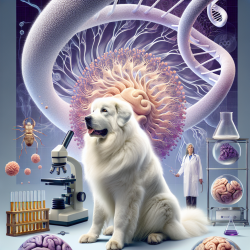Understanding Mentalization-Based Treatment for ASPD
Antisocial Personality Disorder (ASPD) is a complex mental disorder that poses significant challenges both to individuals and society. Despite its prevalence, especially in criminal justice settings, effective treatments have been elusive. A recent study titled "Mentalization for Offending Adult Males (MOAM): study protocol for a randomized controlled trial to evaluate mentalization-based treatment for antisocial personality disorder in male offenders on community probation" sheds light on a promising therapeutic approach: Mentalization-Based Treatment (MBT).
The Science Behind MBT
MBT focuses on enhancing an individual's ability to understand and interpret their own mental states and those of others. This ability, known as mentalization, is often impaired in individuals with ASPD, leading to aggressive and antisocial behaviors. The study conducted a randomized controlled trial (RCT) to evaluate the effectiveness of MBT in reducing aggression and improving overall mental health outcomes in male offenders diagnosed with ASPD.
Key Findings and Implications
The trial involved 302 participants who were randomly assigned to receive either standard probation or probation supplemented with MBT. The primary outcome measured was the frequency of aggressive antisocial behavior, assessed using the Overt Aggression Scale – Modified. Secondary outcomes included violence, offending rates, and mental health status.
- Reduction in Aggression: Participants receiving MBT showed a significant reduction in aggressive behaviors compared to those receiving standard probation.
- Improved Mental Health: MBT participants also exhibited improvements in mental health status, suggesting that enhancing mentalization can have broader therapeutic benefits.
- Cost-Effectiveness: The study also conducted a cost-effectiveness analysis, highlighting that MBT is not only clinically effective but also economically viable.
Implementing MBT in Practice
For practitioners working with individuals diagnosed with ASPD, incorporating MBT into treatment plans could lead to improved outcomes. Here are some steps to consider:
- Training: Ensure that practitioners are adequately trained in MBT techniques to maximize the intervention's effectiveness.
- Individualized Approach: Tailor MBT sessions to address the specific mentalization deficits of each individual.
- Integration with Existing Programs: MBT can be integrated with other therapeutic approaches to provide a comprehensive treatment plan.
Encouraging Further Research
While the results of the MOAM trial are promising, further research is needed to explore the long-term effects of MBT and its applicability to diverse populations, including females and younger individuals. Practitioners are encouraged to participate in ongoing research efforts to refine and expand the use of MBT in treating ASPD.
To read the original research paper, please follow this link: Mentalization for Offending Adult Males (MOAM): study protocol for a randomized controlled trial to evaluate mentalization-based treatment for antisocial personality disorder in male offenders on community probation.










